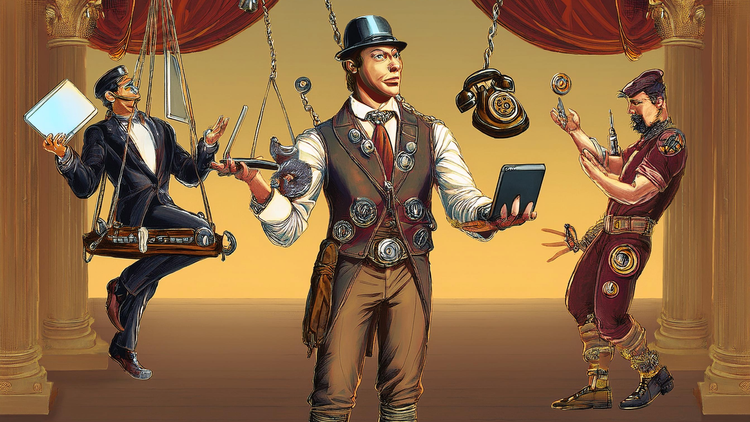Cultural Change Part Two - Decision making

You can only really make a good decision if you know where you are going. If you are making a decision based on treading water, a holding pattern, are you actually achieving anything?
Hopefully Part One of this blog will have opened your mind to your organisation's business model. What are you trying to achieve? What do you deliver? Are you working in the best way to achieve this?
Do the decisions made by your people align with your business model?
Does your business analyse business decisions that simply maintain a status quo? Surely these 'decisions' can be automated or asked of AI.
When decisions are being made, it is imperative to meet two major considerations;
- Are you controlling costs?
- Are you increasing turnover?
In the end, to implement good decision making you need to start with professional leadership.
I have worked with a co-Director, who was a good sales person, but one of the worst decision makers I have ever seen. His view of delegation was in fact capitulation. In effect, he set up members of his team to fail. He demanded transparency from his team members but did everything in his power to stop progressive analysis of his own performance. In the end, we had to drag him kicking and screaming away from all elements of operational control and getting the best out of our team, and focus his efforts on driving turnover.
Because of his standing within the organisation this was a tortuous process, which I still believe he holds against me!
To delegate or not to delegate? This depends on where you see responsibility. You will have a contract of employment that outlines in broad terms what you are employed as. You may well find a nice, pretty organisation chart which highlights line management reporting and possible competencies for the role you are undertaking.
But who really makes things happen?
For me, more importantly, should they be making things happen?
I have worked with a business owner with very little business experience. He once sold mop and buckets door to door in Australia and produced a TV Show called DIYers from Hell Three. He was very wealthy through inherited property and believed that his business acumen was such that he could make strategic decisions around people. He believed that delegation was a right, an entitlement by management to get other people to do their work.
He missed the fundamental basics of delegation; Delegation is a temporary transfer of authority to enable others to grow and learn. The delegate is never responsible for things going wrong. That remains with the leader. The ultimate responsibility remains with management.
“Don’t tell people how to do things, tell them what to do and let them surprise you with their results.” - General Patton
For me, delegation can only work when there is absolutely no sign of a blame culture. Poor leadership goes hand in hand with blame culture. An organisation that has allowed a blame culture to develop, will lack any form of dynamism or the ability to effect change. There is no chance to see such an organisation embrace the cost saving and business growth opportunities offered by new AI tools.
The organisation will be so scared to try anything new that only the weary status quo will follow. This status quo is compounded by the fact that people recruit in their own image. New staff fear risk and not only buy into such a blame culture but also actively promote it.
In my experience, in the most extreme circumstances, only a change in people supported by a new recruitment policy can fix the problem.
Only teamwork works!
It's a cliche but true. Also, what do you expect to find where people need to work together to meet the business model? There is nothing wrong with extolling the virtue of teamwork.
Teamwork is more nuanced than you think. There is room for everyone in a business team. I smile when I hear words of 'inclusion', as this is the cornerstone of teamwork. Everyone has something to offer, but be clear about what you are communally working towards. This is your business model.
Consign blame to your competitors and allow your people to fly.
Make mistakes, people do! Let your team members know and work together to solve any subsequent problems.
Ensure your leaders understand any issues from a mistake. Be transparent.
Use AI tools to help you navigate your business model and minimise recurring mistakes happening.
Define flat management.... time to revisit your organisational chart
Implement an open door policy. This is not as simple as you may think.....



How much does it cost? That entirely depends on your current people. Developing trust between people takes time. You can employ innovative training and development plans. You can commission external consultants such as myself.
But in the end, changing the culture of your organisation will rely on professional leadership and the hearts and minds of your people.




